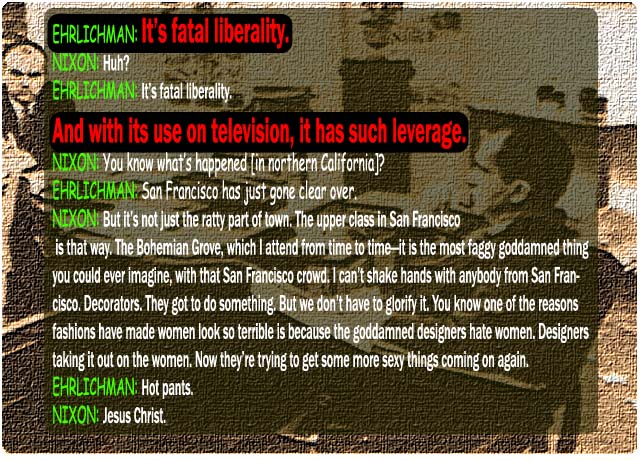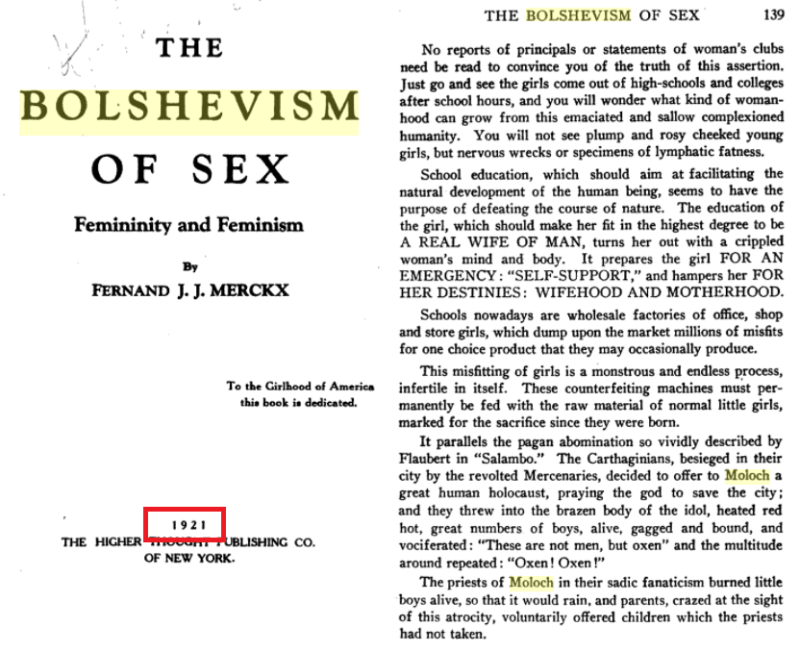politics and politicians
See other politics and politicians Articles
Title: The problems with libertarianism. : philosophy
Source:
Reddit
URL Source: https://www.reddit.com/r/philosophy ... _problems_with_libertarianism/
Published: Jul 20, 2011
Author: Posted by u/perforin
Post Date: 2018-07-20 07:09:34 by Gatlin
Keywords: None
Views: 2113
Comments: 5
The second problem is that libertarianism fails to account for all the means by which our actions are influenced. Continuing the above example, a libertarian would say it is wrong for the government to coerce the restaurant into serving healthy food, but they would probably say that it is acceptable for the restaurant to influence our behavior with aggressive, manipulative advertising and engineering junk foods to push all our evolutionary buttons. Why is one means of influence (coercion) wrong, but another (manipulation of our wants and desires) acceptable? I suspect it is because most libertarians believe we have free will, and therefore we are not forced into eating unhealthy foods. The problem is that we don't have free will; our actions are entirely caused by external factors. Whether someone forces you to do something or they manipulate you into wanting to do an action, the end result is the same: you do the action that they wanted you to do. Because libertarianism doesn't concern itself with the ends it is blind to this problem, and cannot adequately account for it. A better framework would consider both the ends and the means. It would weigh the results of actions, like the health of the population along with all the means, like government regulation and manipulation by advertising when determining the best course of action. Libertarianism has significant structural problems that make it an ineffective moral and social framework regardless of your views on the moral rightness of liberty and government. I see two major problems with libertarianism. The first is that it is a moral and social framework that only considers the means when ruling on the rightness of an action. The problem is that means are not sufficient, only necessary in determining the right action; the ends are also a necessary part of the calculus. Because the ends aren't considered the actions prescribed by libertarianism may or may not be the right ones, it would depend on the ends. Any framework that leads to wrong actions is an ineffective framework. An example of this: libertarianism says the government should not force restaurants to serve healthy food because government force is an immoral means. Even if this causes everyone to become obese and sick the action is still wrong in the eyes of the libertarian because the means are wrong.
Post Comment Private Reply Ignore Thread
Top • Page Up • Full Thread • Page Down • Bottom/Latest
One of the greatest virtues of modern democracy is that the broadest public gets to decide periodically whether or not they like the direction the leaders are taking them. They don’t have to explain themselves, they merely keep the leaders or throw them out, based on what they like and don’t like.
In this way, the broadest mass of people gets to say when they are not content with the direction the leaders have taken them.
With libertarianism, or any other -ism, the ideologues who propound the belief system are true believers in what they believe. Even if it doesn’t work so well in the field, they will stubbornly stick to it because, in their minds, it is “right”, and so therefore a moral issue.
This is true of all forms of government and leadership. Leaders do what they think is right, what their own imperatives drive them to do. Everybody who thinks about politics (or writes on chat boards) thinks pretty highly of his own opinion of things, and thinks that that is the way it should be. ALL leaders are this way, and if they have power, whether as pharaoh, emperor, king, president, dictator, prime minister or county prosecutor, they use that power to advance what they believe to be the right way.
What one man is sure is right, is very wrong to another, so who prevails. The answer is that the man with the power to impose his will prevails. Since nobody ever changes his mind voluntarily, when men are entrenched in power, the society is locked into whatever their opinions are. That will be the structure, that will be the future, and those men will be content with it (regardless of the general outcome), because their moral Alphas will be met.
The only way to change anything is to overthrow those men. Men never change their minds, and if they have power, will always use it to enforce what they think. They always have to be overthrown, to change anything.
The question for every society, then, is simply a matter of how men are to be overthrown. In stable, established monarchies, men have to wait for nature to remove the leader, by death, before they get a shot at a new course. That means that ideas that don’t work for the bulk of people can be in place for a long time. If the bad ideas are bad enough, and the suffering they inflict is big enough, the people may rise up and overthrow the leader in a revolution.
Democracy is merely a peaceable means for overthrowing leaders, based on the general opinion of the mass of people as to whether the current direction is satisfactory to them or not.
So, in the context of libertarians, they are fixed in their beliefs, and actually fear and hate democracy. Libertarianism doesn’t really work in practice, at least not if fully implemented (which has never happened), though libertarian aspects of a society are beneficial. If the full program were implemented, the Libertarians know that their political enemies would try to strike it down at once. Hence the fear and distrust of democracy. The People, writ large, will never go for libertarianism, because it will leave most of them poorer and less secure. The libertarian himself thinks “tough shit, it’s the right way”, which is fine for him to think. But he can’t overcome the publc resistance. And he knows that democracy will push aside some of his most precious principles. So he hates democracy and calls it mob rule.
Thus is it with people of virtually all political stripes. They want to get the power, perhaps through the people, but they don’t want the people to be able to later change their minds. No, no - everybody must stay the course, of whatever the cranks in charge want.
Which is why I am a strong advocate of Western-style democracy. If the people don’t like the course, periodically they get to stage peaceful, state-organized revolution every few years. That is a very good thing.
In Athens the risk of the “tyranny of the mob” was real. In the modern West, with the laws and structures and safeguards and permanent professional government, it isn’t. But ideologues can still quote the ancients, living in the hypocritical mess of ancient Athens, as an argument against “democracy”.
#2. To: Gatlin (#0)
I see two major problems with libertarianism
Some folks seem to think it's FATAL or something.


There is Nothing New under the Aten
#3. To: Vicomte13 (#1)
In the modern West, with the laws and structures and safeguards and permanent professional government, it isn’t
LOL. What a crock of swamp shyte.
#4. To: Gatlin (#0)
Why is one means of influence (coercion) wrong, but another (manipulation of our wants and desires) acceptable?
Obviously the author equates the two. So what's his alternative to government coercion? They should also advertise.
#5. To: misterwhite, Gatlin, vicomte13 (#4) (Edited)
So what's his alternative to government coercion? They should also advertise.
I like Jefferson's Alternative:

"Truth is great and will prevail" -- That's the AMERICAN alternative to Comrade Vicomte's "universal" coercive "professional" rainbow fairy Vanguard Elite.
Top • Page Up • Full Thread • Page Down • Bottom/Latest
[Home] [Headlines] [Latest Articles] [Latest Comments] [Post] [Mail] [Sign-in] [Setup] [Help] [Register]
